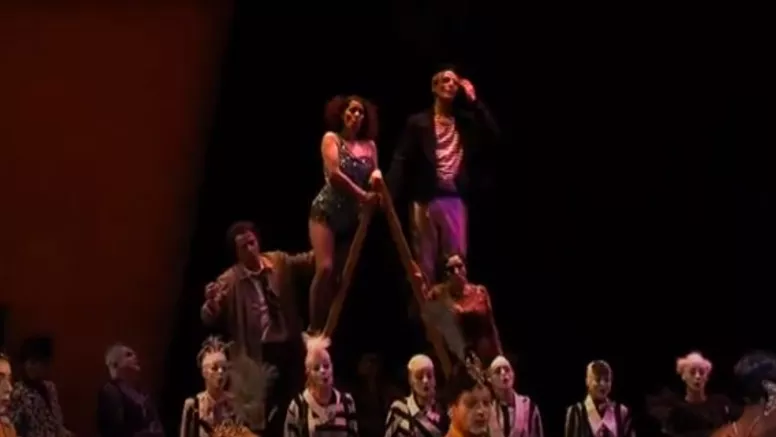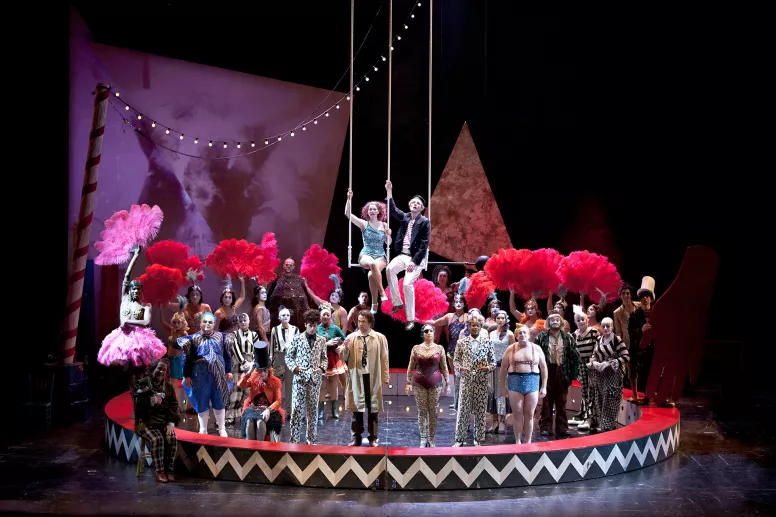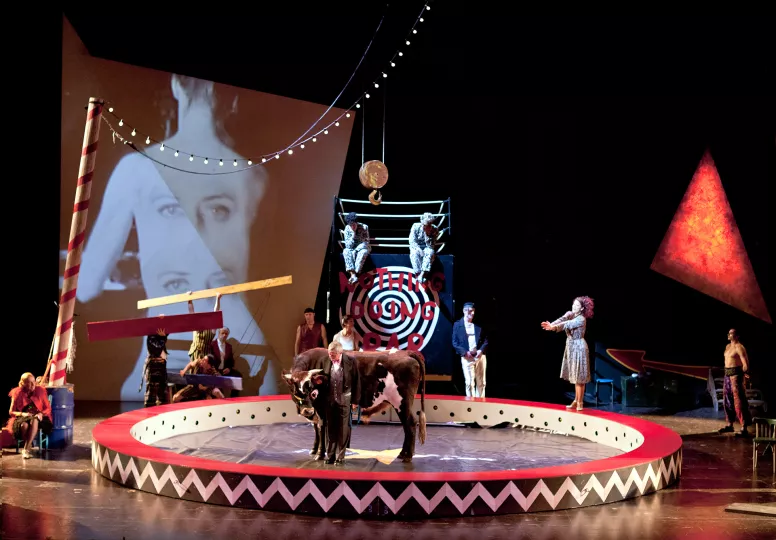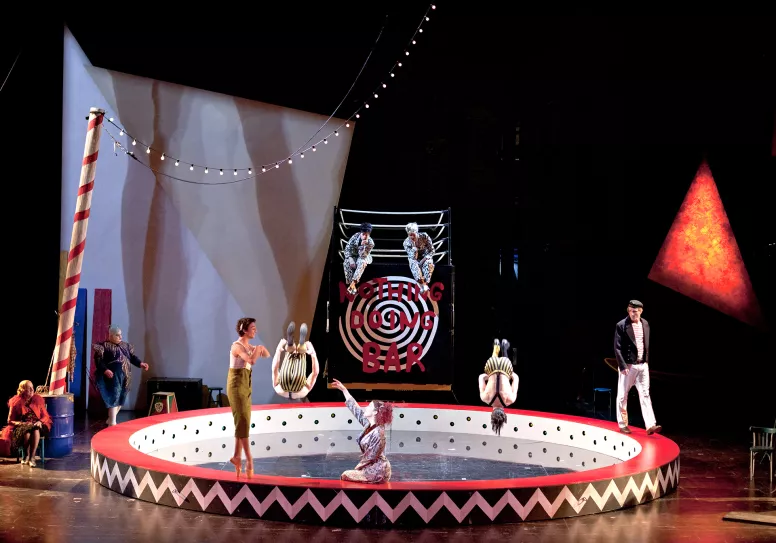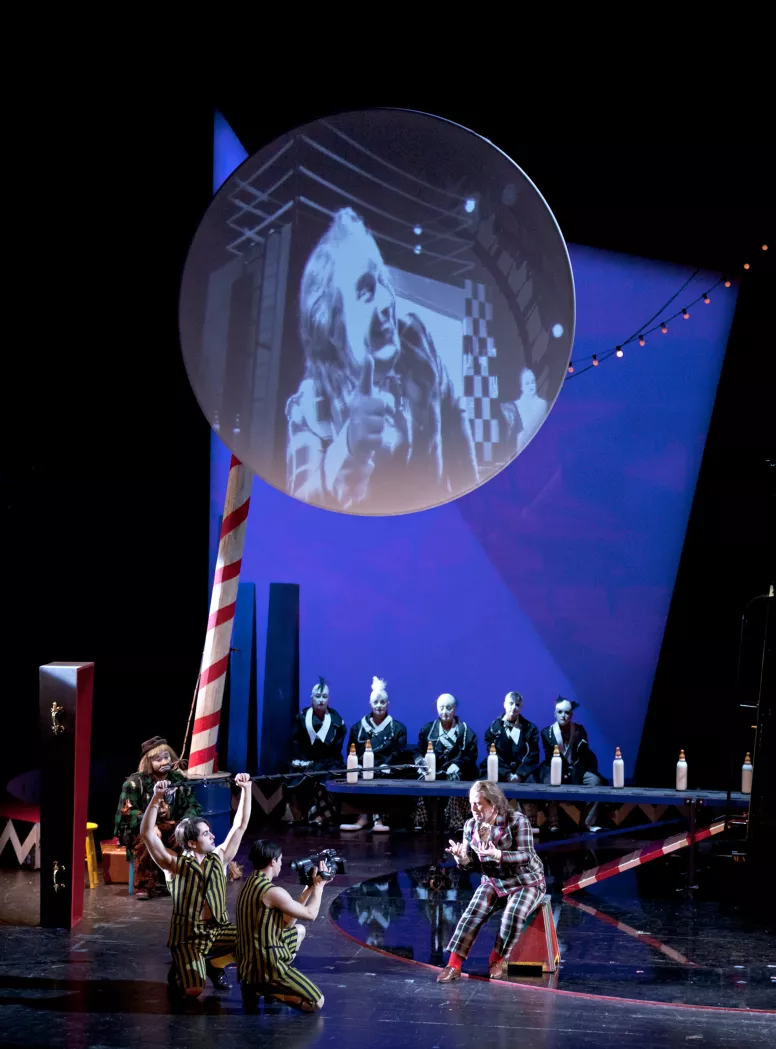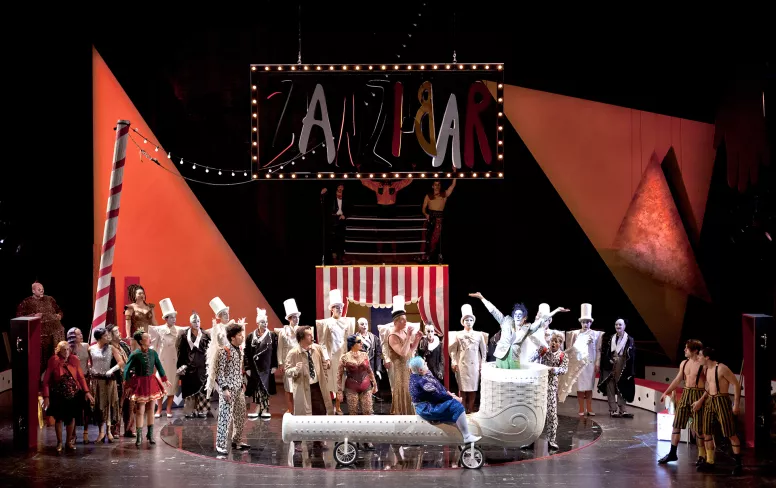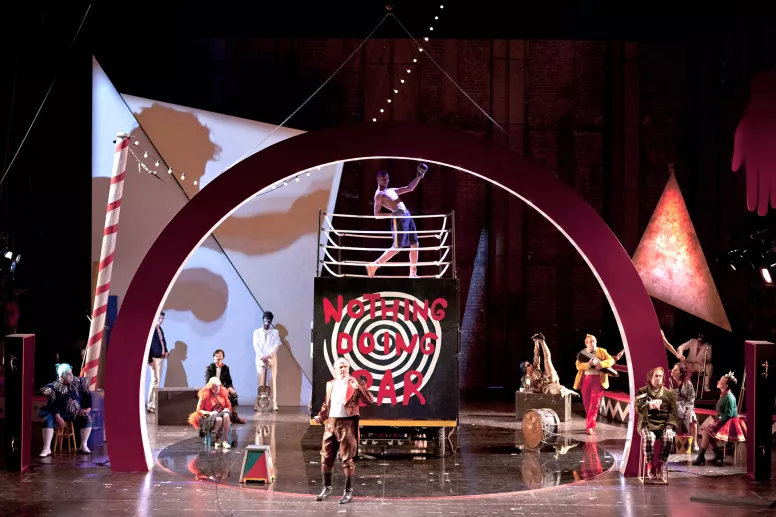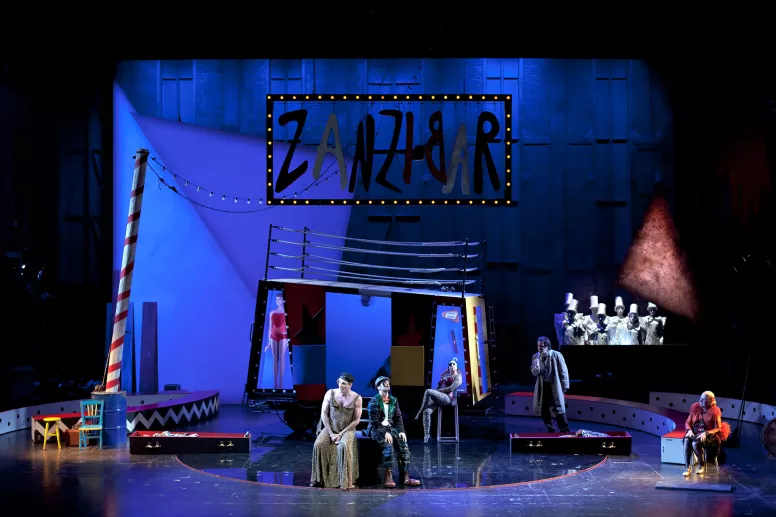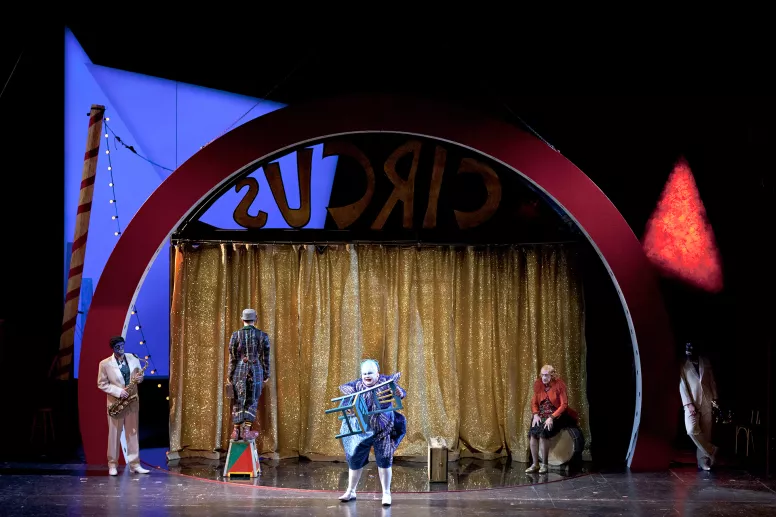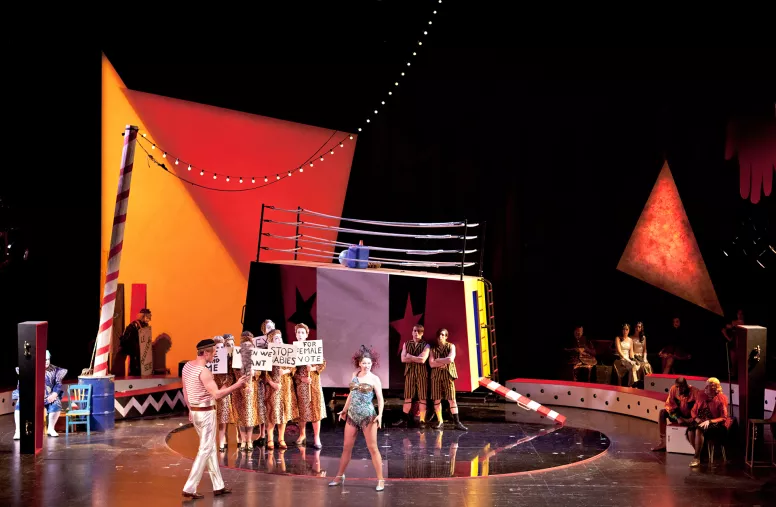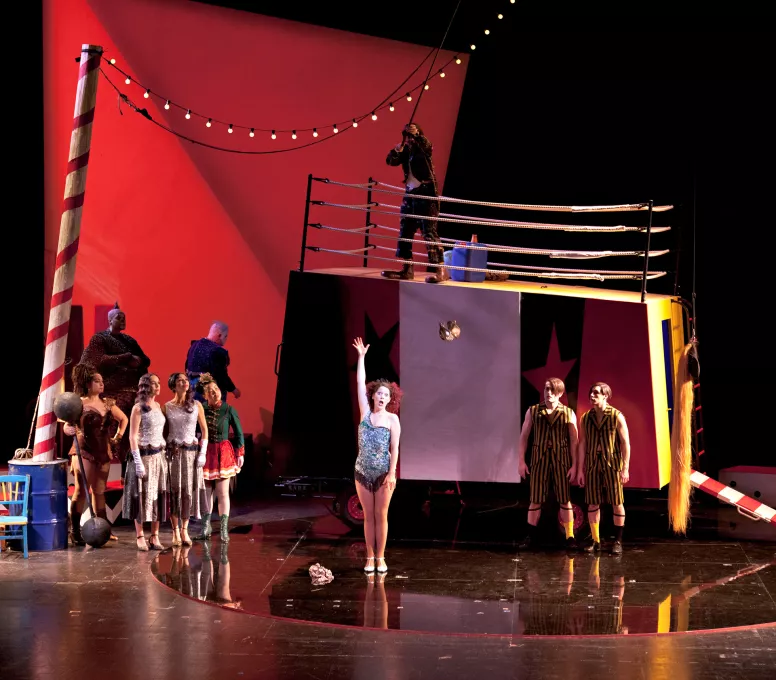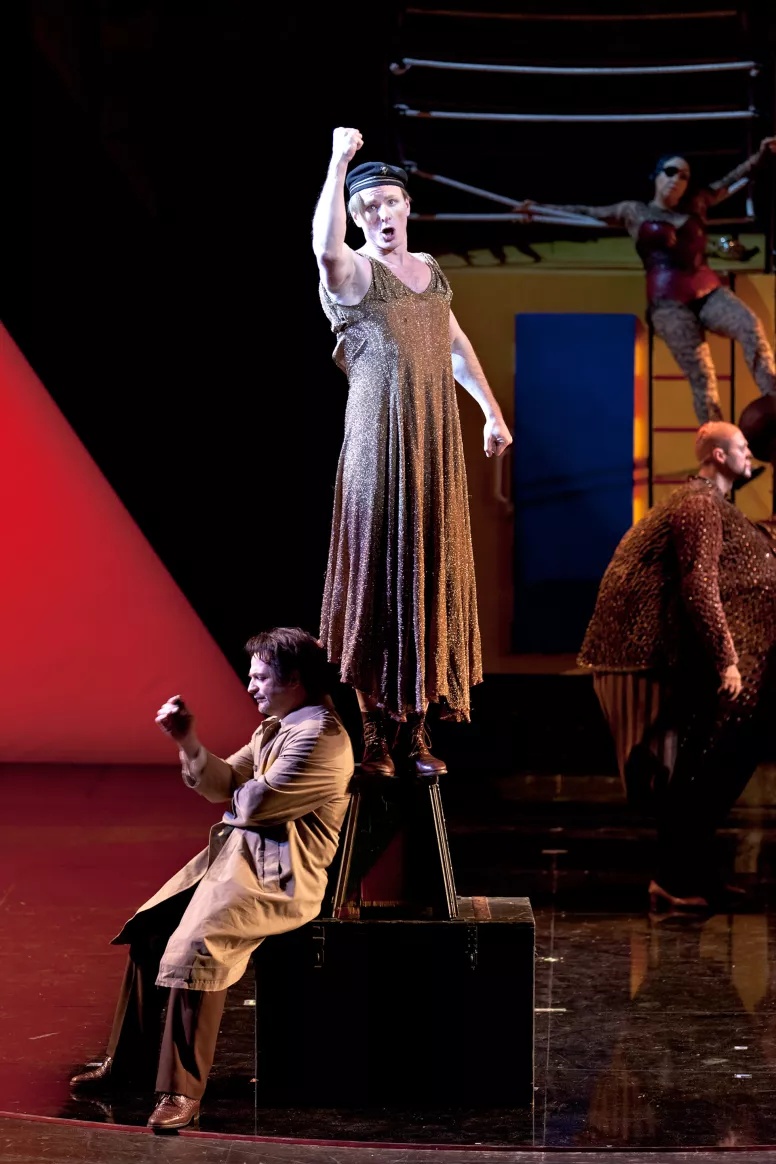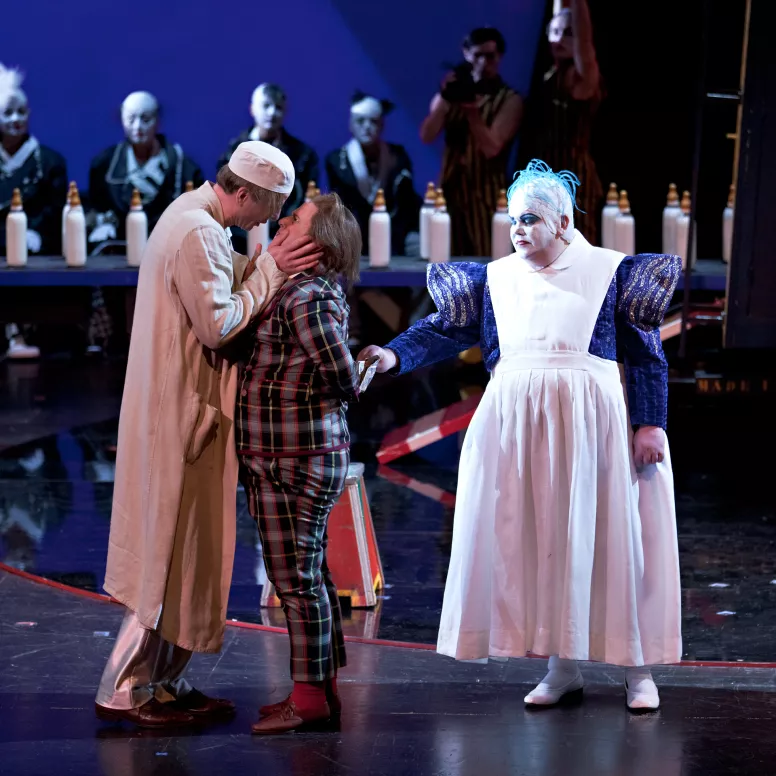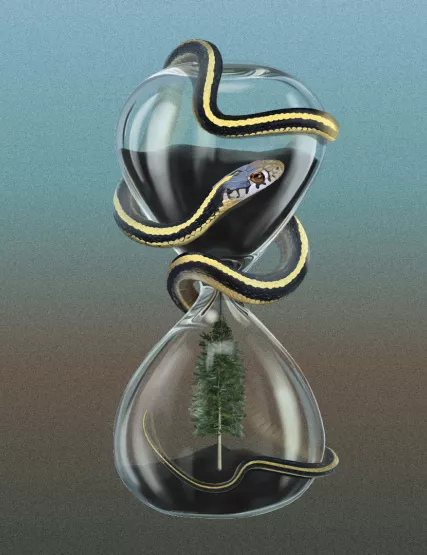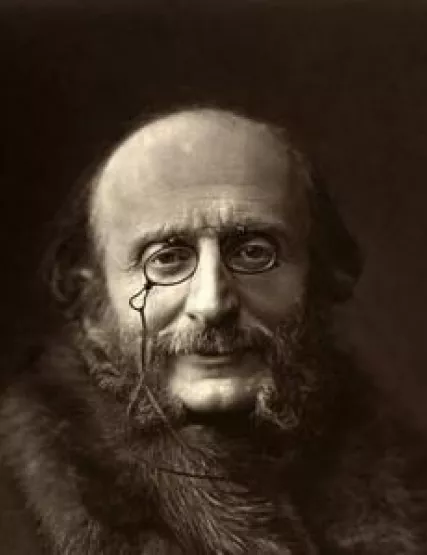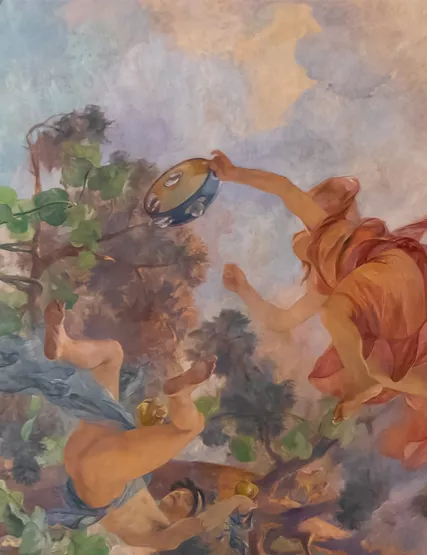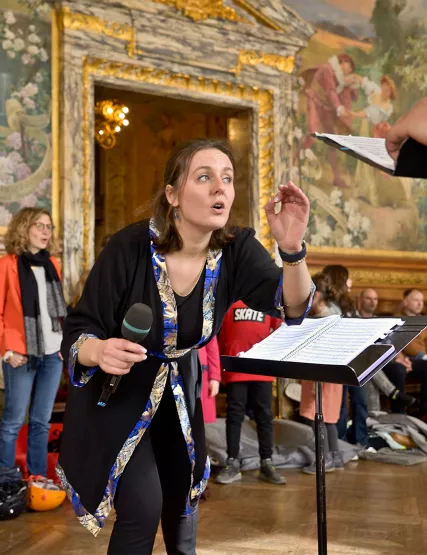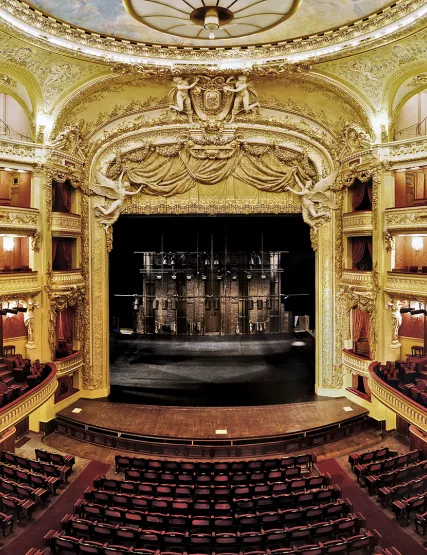Les Mamelles de Tirésias
Opera bouffe in one prologue and two acts by Francis Poulenc. Text by Guillaume Apollinaire. Premiered at the Opéra Comique on 3 June 1947
Soirée dada introduite par Jazz Suite n.1 - Foxtrot by Dimitri Chostakovitch. Creation: 24 mars 1934
Le Bœuf sur le toit
Ballet by Darius Milhaud. Scenario by Jean Cocteau. Premiered at the Théâtre des Champs-Élysées on 21 February 1920.
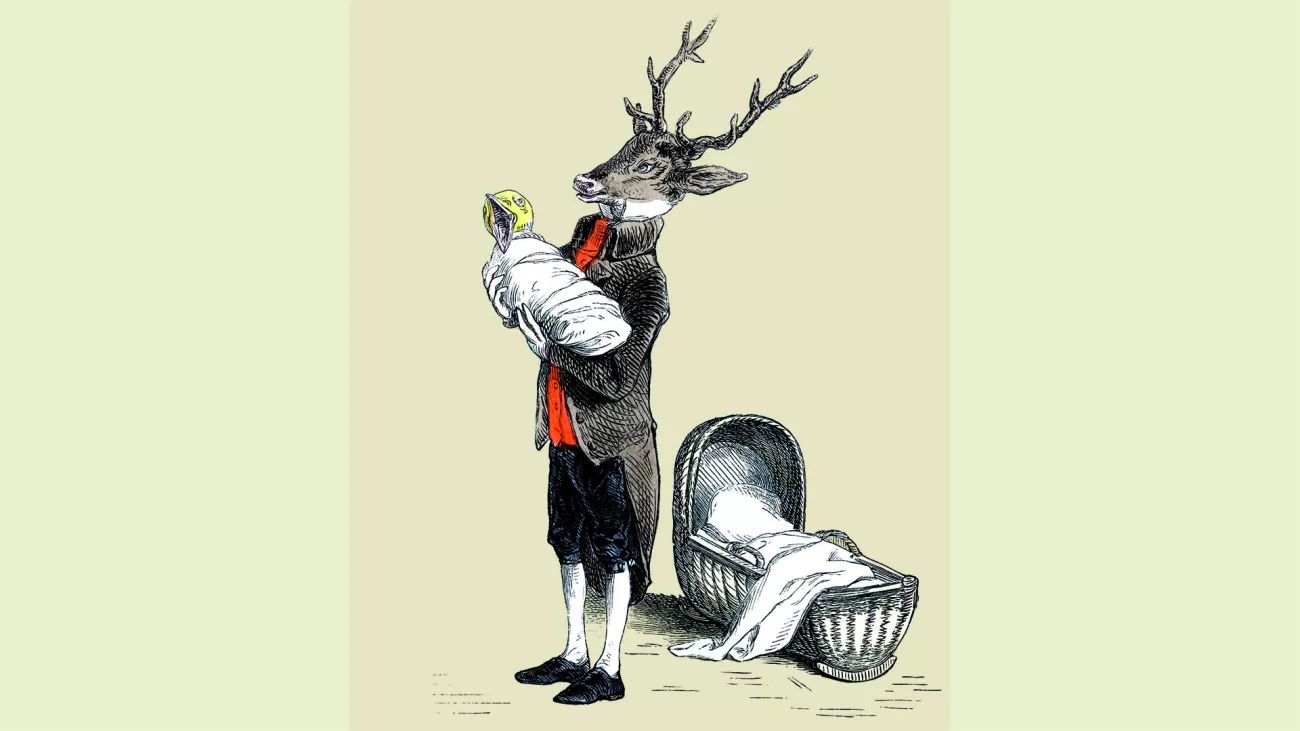
At age 18 Francis Poulenc met Guillaume Apollinaire at the premiere of the play Les Mamelles de Tirésias in the midst of World War I as the poet recovered from a wound on the front. A few months later, Apollinaire died and Poulenc, who often set his poetry to music, would always regret they did not have time to start a real artistic collaboration. Much later by the end of another war after reading anew the text of the play, he found that it would be suitable for the composition of a true opéra bouffe, with its satire of feminism, its scathing social purpose and its trivial characters transfigured by the extravagance of the subject: Does not Thérèse decide to change sex in order to become Tirésias?
“I think I prefer this work to all those I have written,” said Poulenc. “If one wants to get some idea of my complex musical personality, one will find me exactly as I am in Les Mamelles de Tirésias.”
Prologue
The director of the theater presents the audience with the subject of the play: this is a comedy that will not refrain from using all kinds of theatrics in order to persuade the French to have babies!
Act I
The action takes place in Zanzibar. Young Thérèse, a feminist, wants to throw off the yoke of marriage and decides to leave home and lead a man’s life in society. While her Husband is clamoring for his meal, she sheds her breasts and becomes quite hairy. Turned into Tirésias, more masculine than her Husband, she leaves him. Two drunken dice players, Lacouf and Presto, are dancing and quarreling. As they cannot agree on where they are, they shoot one another with a pistol. Dressed as a man, Tirésias buys a newspaper while the people of Zanzibar comment on the duel. Leaving her Husband dressed as a woman in despair, Tirésias sets off to become a city councilman. Drawn by the smell of murder, the Gendarme, called as a witness by the Husband, succumbs to his womanly charms. In the face of Tirésias’s political commitments, the Husband decides to bear children on his own. The populace is amazed, so are Lacouf and Presto, who have resurrected, and the Gendarme hardly believes it.
Intermission
As the choir wonder about the Husband’s new ardor, newborns can be heard singing “Papa.”
Act II
Out of his mind with joy, the Husband is taking care of his brood of 40,049 babies, conceived and delivered in a single day. A journalist arrives from Paris to interview the prodigy. The Husband speaks of his children’s prestigious careers upon which he plans to be a rich man. He then chases away the journalist who tries to borrow money from him. The Husband decides that one of his children will be a journalist. Yet the glibness and impudence of that Son disappoint him. As the Gendarme criticizes him for bringing about a famine with so many children, the Husband sends him to the Fortune-teller. She announces edifying news to the public and congratulates the Husband for his fertility before killing the Gendarme. Intending to hand her over to the commissary, the Husband realizes that she is none other than Thérèse. Despite the loss of her breasts, they fall into each other’s arms while the Gendarme resuscitates. The people of Zanzibar celebrate their reunion and urge the audience to procreate.
Music direction, Ludovic Morlot • Staging, Macha Makeïeff • With Hélène Guilmette, Ivan Ludlow, Werner Van Mechelen, Christophe Gay, Loïc Felix, Thomas Morris, Marc Molomot, Jeannette Fischer, Robert Horn • Dancers, Henri Bruère-Dawson, Romuald Bruneau, Loïc Consalvo, Bràulio Do Nascimento Bandeira, Aurélien Mussard, Lilian, Nguyen Duy Nguyen • Orchestra and Choir of l’Opéra de Lyon
See all the castFriday, January 7, 2011 - 8:00pm
Sunday, January 9, 2011 - 3:00pm
Monday, January 10, 2011 - 8:00pm
Wednesday, January 12, 2011 - 8:00pm
Thursday, January 13, 2011 - 8:00pm
Salle Favart
108, 87, 65, 40, 15, 6 €
Cast





















Dancers, Henri Bruère-Dawson, Romuald Bruneau, Loïc Consalvo, Bràulio Do Nascimento Bandeira, Aurélien Mussard, Lilian, Nguyen Duy Nguyen
Figurant, Edgard Guilet
Orchestre et Chœurs de l’Opéra de Lyon
Production, Opéra de Lyon
Co-production, Opéra Comique
Partnership





